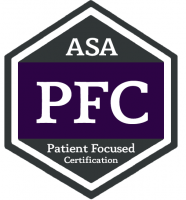A unionization effort filed for 17 employees at the Curaleaf medical dispensary in Hanover, Mass., went all the way to Washington, D.C., before a final decision on the results of a mail-in election was made earlier this month. The majority of ballots had been challenged, some of which remained sealed in the final vote count.
The United Food and Commercial Workers (UFCW) Local 328, which represents more than 11,000 workers in a range of industries throughout Rhode Island and southeastern Massachusetts, filed for the Curaleaf Hanover union election April 20, 2020—during the onset of the COVID-19 pandemic. Ballots went out to the Hanover team in May, and the original vote count was June 26. That vote came back 5-2 in favor of joining the Local 328, excluding 10 challenged ballots, which were determinative, meaning there were more challenged votes than the difference between yeses and noes.
“There was some fighting back and forth—because it was during COVID—about people that they were bringing in from other areas and having them work there,” UFCW Local 328 President Tim Melia said. “But they weren’t part of the Hanover group. The company was arguing that they should be part of the unit and should be able to vote on the contract. And we were arguing back the other way. So, there were some charges about who was eligible and who wasn’t when the vote came.”
The challenged ballots took nearly 10 months to sort out. A federal investigation and hearing by the National Labor Relations Board (NLRB) examined the circumstances of the challenged ballots, which stemmed from which workers were employed at the Hanover location before government shutdowns and which workers were not. The Boston regional office of the NLRB determined that six of the 10 challenged ballots should not be counted. Curaleaf appealed that decision to the NLRB in Washington, D.C., where the labor board declined to hear the case, essentially upholding the ruling of the regional director in Boston.
The final vote was 8-3 in favor of the Curaleaf Hanover workers unionizing, which became official on April 9, 2021, roughly a year after the workers’ campaign was organized.
Local 328 organizers first connected with dispensary workers at Curaleaf Hanover in March 2020, a month before filing the unionization vote and before pandemic-related government shutdowns were enacted. At the time in Massachusetts, the shutdowns affected adult-use dispensaries while medical dispensaries like Curaleaf Hanover were deemed essential.
“What ended up happening was that the company had sent over some workers from different locations because this is a purely medicinal facility [in Hanover] and the [adult-use] locations for Curaleaf had closed,” Local 328 Director of Organizing Sam Marvin said. “So, they had temporarily sent some workers from kind of far away to work at the medicinal location that was still open. And, so, essentially that made up some of the challenged votes.”
Curaleaf did not confirm the pre-shutdown whereabouts of its workers who represented the six challenged ballots that remained sealed, but the NLRB regional director in Boston determined those six should not be counted as part of the Hanover group. Had the six Hanover ballots that remained sealed all been no votes, then, theoretically, the union organization effort would have failed, 9-8.
A spokesperson from Curaleaf said the vote at the company’s Hanover dispensary was a “secret ballot election” but recognized that the final count was in fact in favor of union representation by the Local 328 for purposes of collective bargaining.
“While we’re disappointed with this outcome, because we believe team members are best served dealing directly with our management team, we respect the collective voice of our Hanover team members at the time and will seek to have a collaborative working relationship with the UFCW,” the spokesperson said. “We will continue to prioritize creating a positive, supportive and inclusive work environment for all team members and provide our patients and customers with the excellent service they expect and deserve from Curaleaf.”
Going Beyond Wages and Benefits
When Cannabis Business Times reached out to Curaleaf following the final vote and asked in what ways the company prioritizes taking care of its employees and meeting their needs, the spokesperson said, “We welcome everyone to join our employee resource groups focused on fostering inclusion.” The company identified specific groups that have been developed to meet this priority:
- Black, Indigenous and People of Color (Curaleaf in Color)
- WCC (Women’s Cannabis Collective)
- PRIDE/QUSH (Queer-Centered Unity and Service Huddle)
- Working Parents (FamiLeaf)
- Community and Volunteerism (Curaleaf Cares)
Curaleaf also hosts panel discussions and support events for all team members:
- Heritage Lunch-in (food dishes that represent our heritage—celebrating diversity)
- “Black in Cannabis” panel discussion (education and awareness of the war on drugs and historical community impact of Black people in cannabis)
- “AAPI in Cannabis” panel discussion (education and awareness of Asian American Pacific Islander communities in cannabis)
- Holding Space and communicating from the C-suite (for times of grief and support—scheduled often and as needed when team members request and/or crisis happen. E.g., George Floyd murder and trial, mass shootings, Asian hate crimes, etc.)
- “Help a Family” (sponsoring Curaleaf team members who are in additional financial need during the holiday season)
- Virtual yoga and meditation classes
“Our team members are the heart and soul of our company,” the spokesperson said. “Their dedication and commitment to serving our patients and customers is exemplified by their incredible efforts during this challenging time as our country deals with the COVID-19 pandemic.”
UFCW’s Push to Unionize Cannabis Workers
First organized by meat cutters and butchers in 1937, the Local 328 now represents workers in myriad industries, including retail food, institutional food, health care, banking, transportation, manufacturing, barbers, cosmetologists and now cannabis. But the push to unionize the cannabis space is just starting to unfold, both in the Local 328’s region and across the nation. Of the 11,000-plus workers represented by the Local 328, fewer than 100 are from the cannabis space. The union is working to increase that representation.
Earlier this month, dispensary workers at Greenleaf Compassionate Care Center in Portsmouth, R.I., unionized by a 21-1 vote to join the Local 328. The organized effort includes budtenders, keyholders, online team members and delivery associates.
Local 328 now represents workers from four cannabis businesses, including the Ocean State Cultivation Center (OSCC) in Warwick, R.I., where workers officially became the state’s first unionized cannabis organization with a negotiated contract in October 2020. OSCC provides cannabis products to compassion centers operating in Portsmouth, Providence and Warwick that serve more than 18,000 cannabis patients in Rhode Island’s medical program.
Perfect Union, a vertically integrated operator and parent company of OSCC, with dispensaries in California, New Mexico and Rhode Island, began paying all employees an additional $2.50 per hour on March 16, 2020—at the onset of COVID-19 and while negotiations were still taking place with UFCW. The bonus pay extended to more than 200 employees, including those working in cultivation, distribution, manufacturing and retail.
“Taking care of our employees is one of our highest priorities,” Perfect Union CEO David Spradlin said in a Local 328 release. “We are pleased to be partnering with the UFCW Local 328 and helping to set a standard for workers in Rhode Island’s cannabis industry. Our partnership ensures our employees will be treated fairly and equitably, allowing us to better serve the community around us.”
The two parties agreed to a labor peace agreement in late 2019, which committed them to open, transparent dialogue throughout the negotiation process, Marvin said. A labor peace agreement is an arrangement between a union and an employer under which one or both sides agree to waive certain rights under federal law with regard to union organization and related activity. Such an agreement is more likely to lead to unionization of a workplace, according to the U.S. Chamber of Commerce.
The finalized contract guarantees a living wage, comprehensive benefits, opportunities for career advancement and safe working conditions for OSCC employees, according to a Local 328 press release.
“The UFCW has been so important in turning these jobs into careers,” said Matthew Baryshyan, who works in cultivation at OSCC. “As this industry grows, so does our need to make sure our best interests are taken into consideration. We now have better wages, a pension plan, full benefits, vacation time, and the list goes on. The UFCW is making sure there is a future in cannabis, and it’s a bright one.”
Does Company Size Matter?
In addition, Local 328 representatives are currently negotiating a contract for the cannabis workers at a Cresco Labs cultivation and processing facility in Fall River, Mass. A multistate operator headquartered in Chicago, Cresco also operates one of its Sunnyside dispensaries in Fall River, after the company closed on its acquisition of Hope Heal Health Inc. in February 2020.
Earlier this year, more than 180 UFCW Local 881 members who work at Cresco Labs in Joliet, Ill., ratified a union contract that raised wages and improved benefits.
While Cresco Labs and Curaleaf are two of the biggest cannabis companies in the world, Marvin said workers throughout the industry essentially want the same thing—stability.
“Sometimes the smaller, medium-size companies will sell to a larger company,” he said. “So that’s why that’s one of the big issues for even the smaller, medium [companies] is to have some sense of protection and security in case that were to happen. They can still protect their unions, still protect their benefits and sit at the table with a new employer.”
As the biggest companies continue to grow in a sector with increasing revenues, workers of those companies want to ensure they are rewarded “in the industry where they’re creating these profits through their work,” Marvin said. This can take the shape of pay increases, ownership stakes or more inclusive workspaces.
Unionization efforts at Curaleaf Hanover and the Cresco Labs facility in Fall River come as the Massachusetts cannabis industry generated roughly $696 million in sales in 2020—a 56.4% increase from 2019, according to adult-use sales and production data from the state’s Cannabis Control Commission.
Since the adult-use system launched more than two years ago, Massachusetts cannabis sales have exceeded more than $1.5 billion overall. Cannabis sales in 2021 have already logged roughly $370 million through April, according to the state’s seed-to-sale tracking system.
Worker-Management Relations
Big or small, the Local 328 is pushing to extend its representation in the cannabis space. Sometimes organization efforts are met with cordial negotiations, and other times they are not, Marvin said.
As other state legislatures continue to debate and pass adult-use cannabis measures, lawmakers are including provisions in their bills that aim to deter anti-union practices on the part of cannabis business owners. For example, Virginia Gov. Ralph Northam signed legislation last week that gives the state’s incoming Cannabis Control Authority the power to strip licenses from any cannabis business that doesn’t remain neutral while its workers attempt to unionize.
Unionization can be good for both employers and employees, Marvin said. A key benefit made possible through unionization is that employers who may have a tough time entering into industry pension funds could gain access through labor unions that represent their workers, Marvin said.
“For example, we have a [United Steelworkers] industry pension fund that we can now negotiate these employers into because they’re union,” he said. “And we also have access to our industry health and welfare funds as well. So, maybe for some employers that cost can be greater if they’re doing it alone.”
While workers can gain health care and a secure retirement through unionization—which is not to say they can’t gain those benefits without a union—improving their relations with management can translate to the customer experience and reduce turnover, Marvin said.
“We don’t want to see an industry that has a high turnover where patients and customers are going in and seeing a new face every day,” he said. “We want to see that these are good jobs, that workers can take care of their families and their patients and customers at the same time. And I think ultimately that’s very beneficial for the consumer—that they can cultivate that relationship with employees and expect to see them the week after, and the week after that.”
Continuing the Push
Although Local 328 representatives have a trio of moving parts in the cannabis space—including their current negotiation with Cresco Labs and upcoming negotiation efforts with Curaleaf and Greenleaf—Marvin and Melia said the budding sector is ripe for additional unionization. Union negotiations are often centered on wages, hours, benefits and working conditions, while others choose to organize in order to gain dignity and respect on the job, Melia said.
Specifically for workers in medical dispensaries, who were deemed essential in many states as they worked on the front lines during the pandemic, having personal protective equipment (PPE), social-distancing protocols and proper cleaning measures in place were important safety standards, Marvin said. In general, working during a pandemic was a tipping point for many workers in a variety of sectors to organize, he said.
Going hand-in-hand with job security, workers want to make sure they are no longer at-will employees, Marvin said. In U.S. labor law, at-will employment is an employer’s ability to dismiss an employee for any reason, and without warning, as long as the reason is not illegal.
“I think that the organizing that workers are doing now is essentially framing how these jobs are going to be not only today and tomorrow, but for years down the road,” he said. “So, again, we want to make sure these are good jobs and we’re going to continue to communicate and partner with cannabis workers.”







